Locked out during pandemic: Half of India’s rural kids unable to read more than a few words, finds a survey
School closures in India have led to a drop in learning and reading abilities of kids compared to the pre-pandemic situation. A survey pointed out that nearly half of rural kids in India are unable to read more than a few words. Also, of those able to access online education, 43 per cent faced difficulty in following online classes and videos.

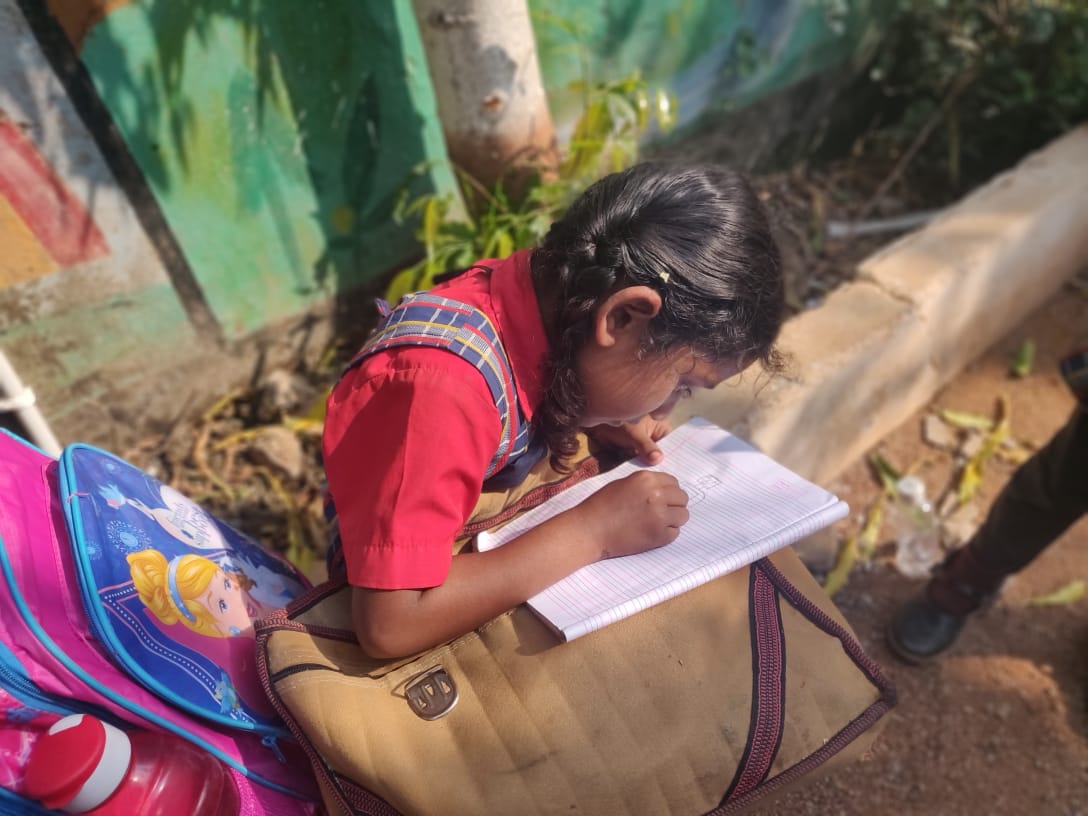
For many kids, school education is the only hope. Photo: By arrangement
A survey shows that the school closures in the wake of COVID19 have led to alarming inequities in learning opportunities for children in India. For the past 18 months, schools in India have been shut to contain the spread of coronavirus and now as some states such as Uttar Pradesh have reopened schools, some are still considering reopening.
A large section of children living in the rural areas in India were adversely impacted by the school closure and they didn’t have the luxury of attending online classes or learning through their smartphones when teachers and students in urban areas resorted to distance learning with virtual classrooms.
The result is — nearly half (48 per cent) of rural kids (aged 7 to 13 years of age) in India are unable to read more than a few words.
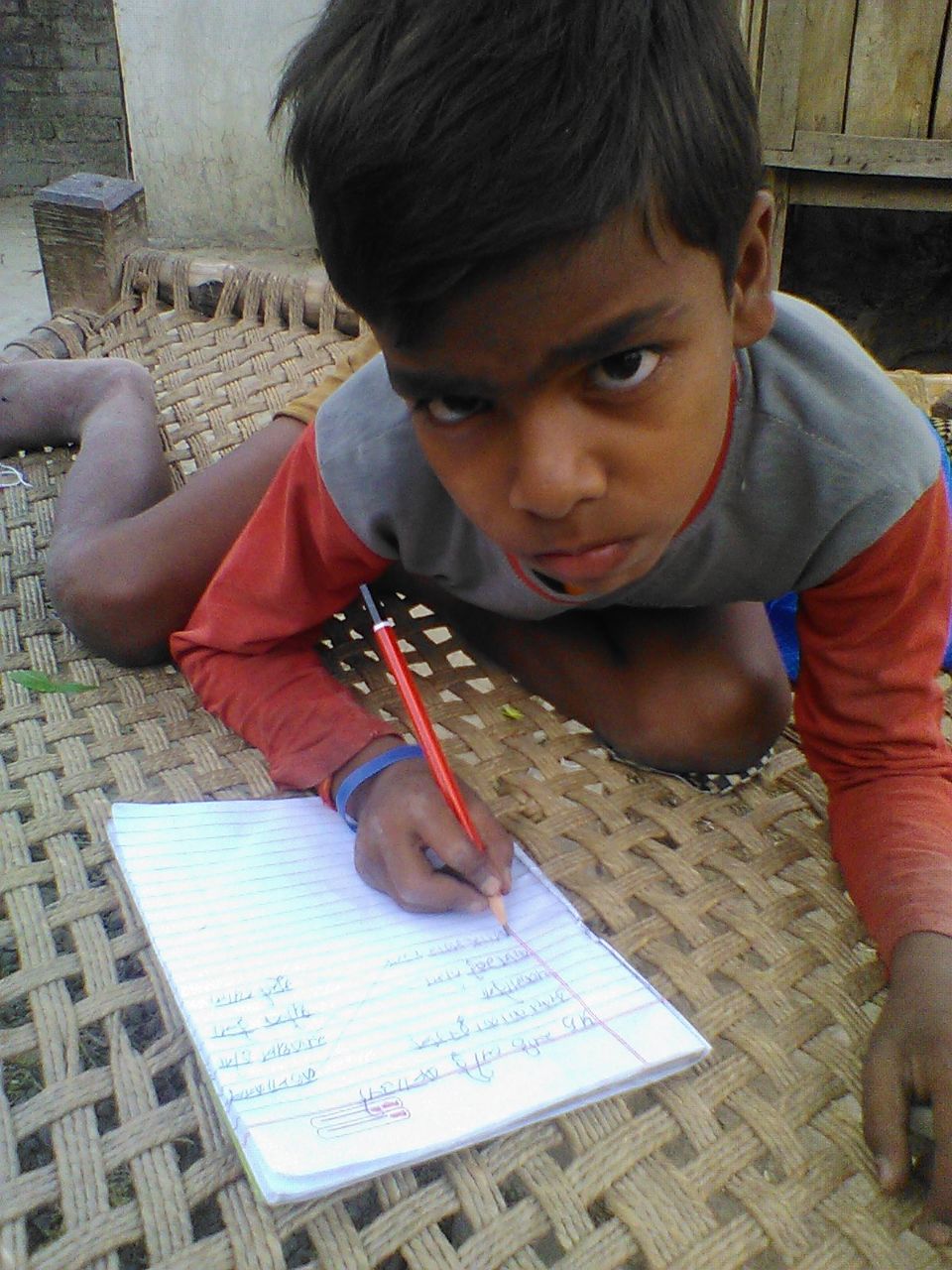
The school survey titled ‘Emergency report on School Education’ released on September 6 shows that only eight per cent rural kids had the opportunity to study online regularly and 37 per cent were not studying at all.
‘The School’ survey was conducted this year in August in 15 states and union territories including Assam, Bihar, Chandigarh, Delhi, Gujarat, Jharkhand, Karnataka, Maharashtra, Odisha, Punjab, Tamil Nadu, Uttar Pradesh and West Bengal. The survey was a joint effort of nearly 100 volunteers across the country. The report was prepared by the coordination team that included Indian economists Jean Drèze and Reetika Khera along with other volunteers.
As part of the survey, close to 1,400 households were interviewed and about 60 per cent of the sample households hailed from rural areas.
Three fourth of the surveyed parents said that their children’s reading abilities have declined during the school closure due to COVID19. Almost all parents (97 per cent) said schools should reopen as soon as possible and for many of them, school education is the only hope that their children will have a better life than their own.
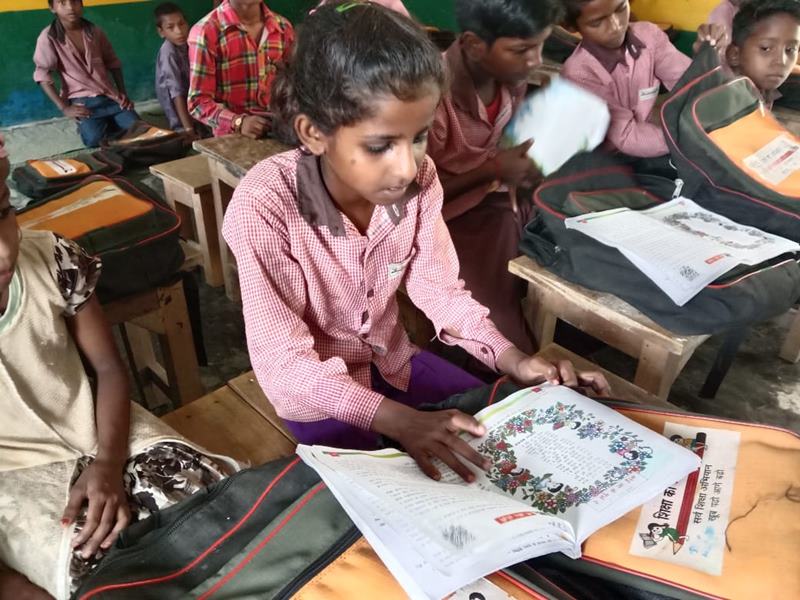
Smartphone use limited to adults in rural areas
The survey pointed out that one reason for the declining reading and learning abilities of kids is that many sample households have no smartphone. Despite half (51 per cent) of rural families having smartphones, only eight per cent of the kids in such families were studying regularly.
“Smartphones are often used by working adults, and may or may not be available to school children, especially the younger siblings. In addition, there are other issues of online access such as poor connectivity and lack of money for data,” stated the survey report.
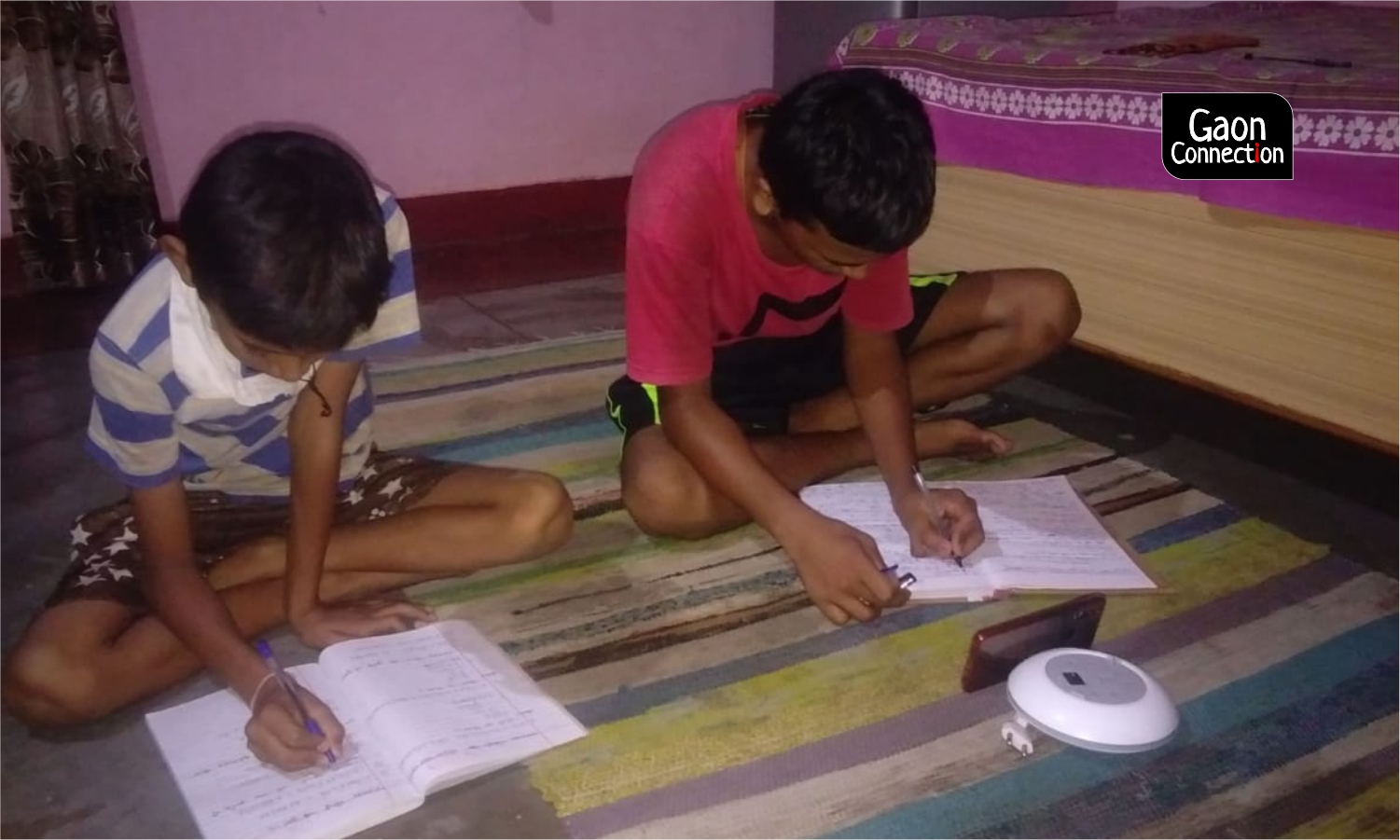
There exist many loopholes when it comes to educating children living in rural areas virtually, however, the ground reality shows that parents in rural areas are either unaware or generally disinterested.
For instance, Arjun, father of school going kids, from Barka village in Muzaffarpur, Bihar, told Gaon Connection: “I have a smartphone, but we don’t know how to teach children through this.”
However, the situation in urban areas was also not very satisfactory. The proportion of parents who felt that their child had ‘adequate online access’ was just 23 per cent in urban areas and eight per cent in rural areas.
Besides access to smartphones, every two in three rural kids faced connectivity problems, 43 per cent of kids managing to access online study complained that it was difficult for them to follow online classes and videos. One third of the surveyed rural kids said they used to study ‘sometimes’ at home without any help from parents or teachers.
Also Read: Poor internet, limited smartphone users, weather, affects online schooling in Uttarakhand
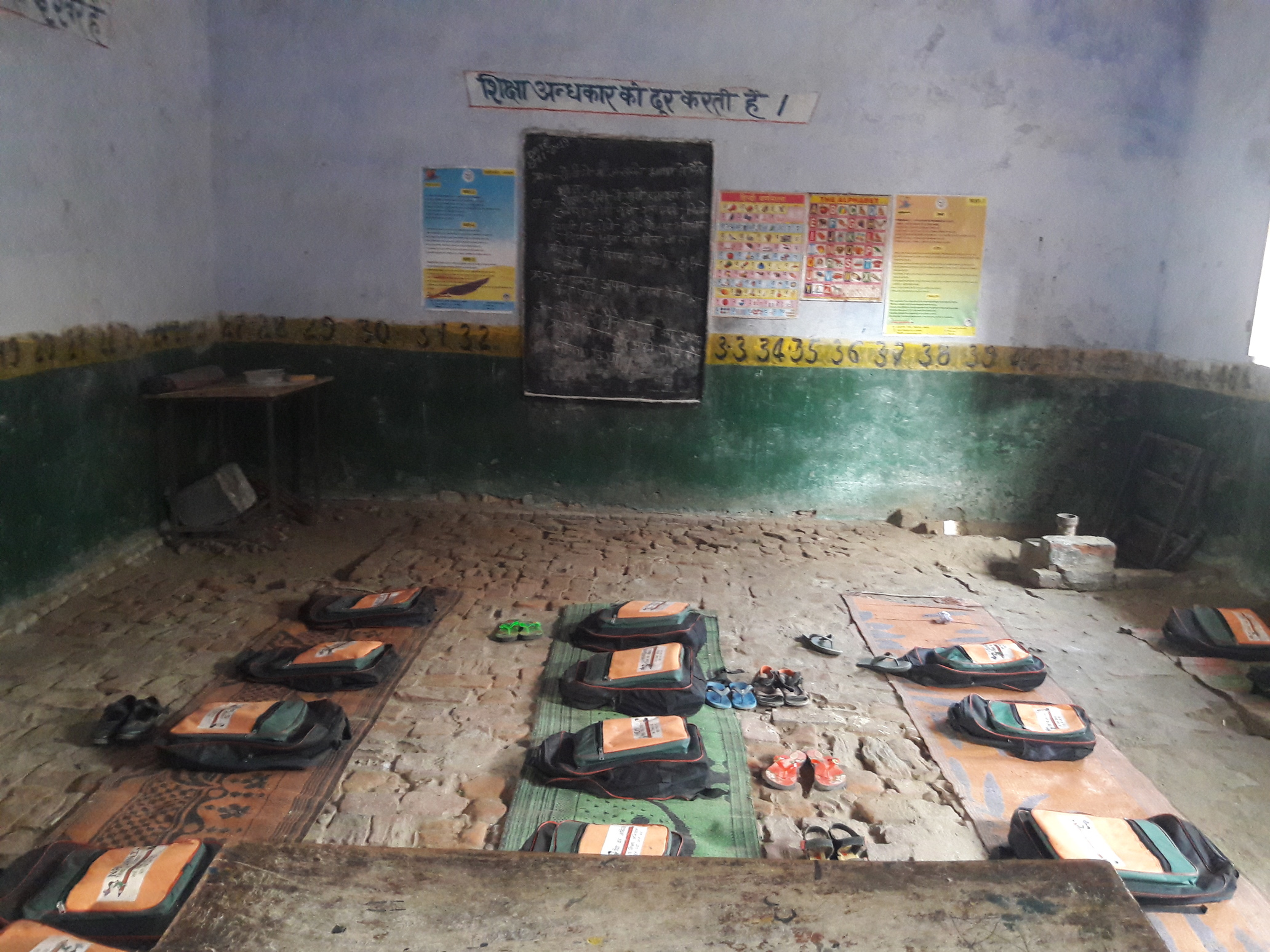
No help to ‘offline children
The survey report also highlighted that in many states, including Assam, Bihar, Jharkhand and Uttar Pradesh, virtually nothing has been done to help children who lack the means for online learning.
In other states such as Karnataka, Maharashtra, Punjab and Rajasthan, the survey claimed that some efforts have been made, for instance by giving ‘worksheets’ to offline children by way of homework, or by instructing teachers to visit parents’ homes from time to time for advice.
Also Read: COVID-19 exposes fissures in our education system that discriminates against rural kids
“Most of these efforts, however, are far from satisfactory, judging not only from the testimonies of parents and children, but also from the fact that children’s reading and writing abilities have been in freefall during the lockout. The youngest children, e.g. in Grades 1 and 2, have been especially deprived of support,” stated the survey report.
This impact was also corroborated in a recent report by UNICEF. It showed that in India, 80 per cent of children aged 14-18 years reported lower levels of learning than when physically at school. This was higher than the neighbouring country Sri Lanka, where 69 per cent of parents of primary school children reported that their children were learning ‘less’ or ‘a lot less.’
Other than decreasing learning abilities, experts fear an increase in dropout of school going kids, especially girls. “Some major issues that we will have to deal with are going to be a drop in the learning levels, students dropping out of school and parents pulling their children out of schools due to economic stress, girls in particular,” Karnataka-based Nagakarthik MP, the founder of the SauraMandala Foundation, a non-profit working with vulnerable communities, told Gaon Connection.
“The impact is going to be long-term,” he added while talking about the impact on children in poor and low-resource settings in rural areas.
Also Read: School dropouts in rural areas are already high. Post-lockdown, they may go up further

